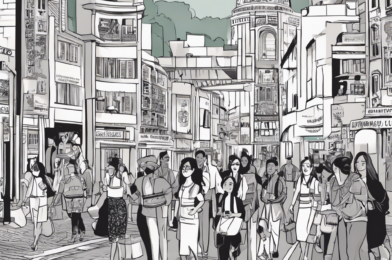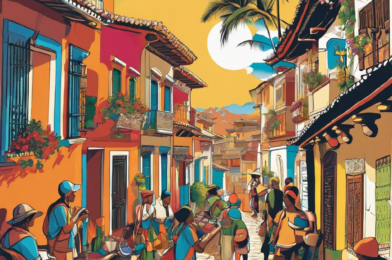Embarking on a gap year journey can be a transformative experience for young adults seeking to explore the world, discover new cultures, and gain valuable life skills. One of the most enriching aspects of a gap year is engaging in cultural adventures that allow individuals to immerse themselves in different ways of life, traditions, and customs. From volunteering in remote communities to participating in traditional ceremonies, gap year cultural adventures offer a unique opportunity to broaden one’s horizons and foster a deeper understanding of the world around us.
One popular way to experience a new culture during a gap year is through homestay programs. By living with local families, travelers can gain firsthand insights into daily life, traditions, and customs of the host country. Sharing meals, participating in family activities, and learning the local language are all part of the immersive experience that homestays provide. This intimate setting allows gap year participants to forge meaningful connections with locals and develop a deeper appreciation for the host culture.
Another exciting cultural adventure that many gap year travelers embark on is participating in traditional festivals and celebrations. Whether it’s joining in the vibrant festivities of Carnival in Brazil, witnessing the breathtaking lantern festival in Thailand, or taking part in a traditional tea ceremony in Japan, these experiences offer a glimpse into the rich cultural heritage of different societies. By actively participating in these events, gap year participants can celebrate diversity, learn about the significance of various customs, and create lasting memories.
Volunteering abroad is another popular option for those looking to engage in meaningful cultural experiences during their gap year. Whether it’s teaching English in a local school, assisting with community development projects, or working on environmental conservation initiatives, volunteering allows individuals to make a positive impact while immersing themselves in a new culture. By working alongside locals and addressing real societal needs, gap year volunteers can gain a deeper understanding of global issues and contribute to sustainable development efforts.
Exploring historical sites and museums is a great way for gap year travelers to delve into the rich history and heritage of different cultures. From ancient ruins and archaeological sites to art galleries and cultural museums, these immersive experiences offer valuable insights into the traditions, beliefs, and achievements of past civilizations. By exploring these sites with knowledgeable guides or historians, gap year participants can deepen their appreciation for the cultural significance of these landmarks and artifacts.
Language immersion programs are also a popular choice for gap year participants looking to enhance their language skills while immersing themselves in a new culture. Whether it’s studying Spanish in Spain, learning Mandarin in China, or mastering French in Canada, language immersion programs offer a comprehensive approach to language learning. Through interactive classes, cultural excursions, and homestay experiences, participants can not only improve their language proficiency but also gain a deeper understanding of the local customs and traditions.
Embarking on a culinary journey is another exciting way for gap year travelers to explore the cultural diversity of different regions. From sampling street food in bustling markets to attending cooking classes with local chefs, food plays a central role in shaping cultural identity and heritage. By indulging in traditional dishes, learning about local ingredients, and understanding the culinary traditions of a country, gap year participants can savor the flavors of a culture and appreciate the artistry behind each dish.
In conclusion, gap year cultural adventures offer a unique opportunity for young adults to step out of their comfort zones, embrace diversity, and cultivate a global perspective. Whether it’s through homestay programs, volunteering initiatives, cultural festivals, or language immersion experiences, engaging in cultural adventures can broaden one’s horizons, foster cross-cultural understanding, and create lifelong memories. By embarking on these immersive journeys, gap year participants can not only explore the world but also discover more about themselves and their place in a diverse and interconnected global community.




